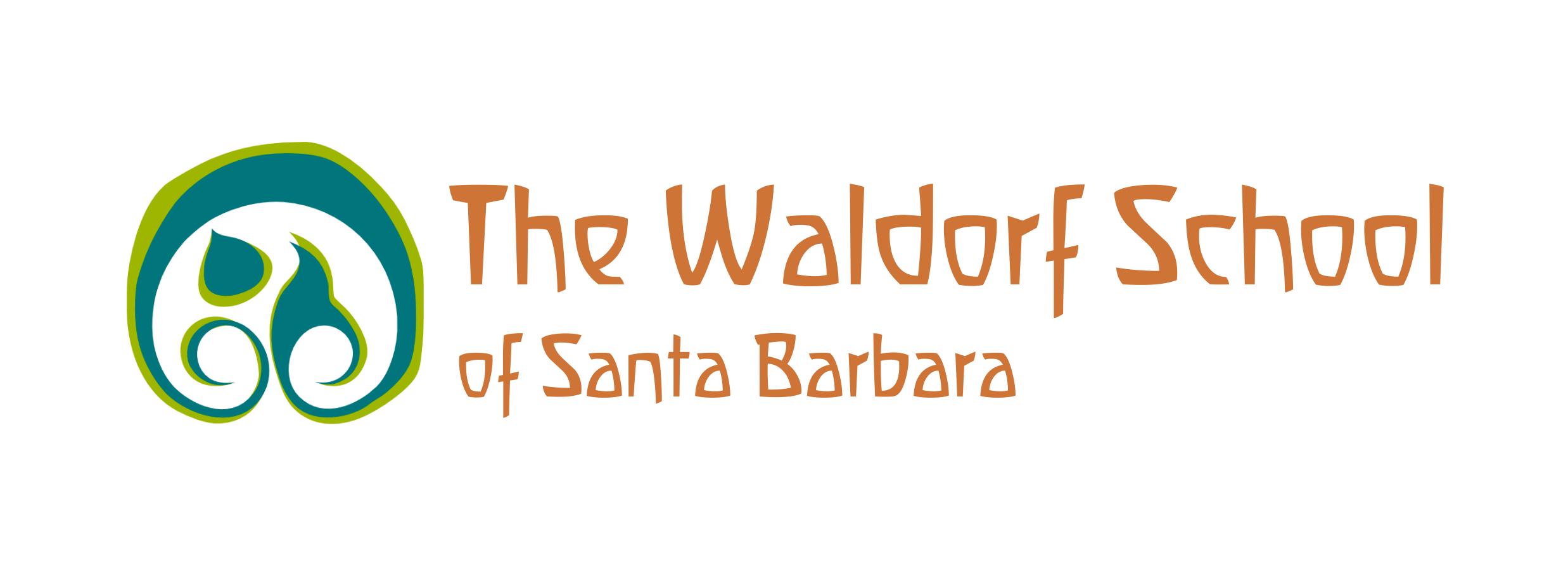Lessons at WSSB
Dear Members of The Waldorf School of Santa Barbara Community,
This week's rain, hail, and rainbows have been a cause for joy among the children at WSSB. Some said the day of hail was -- and we quote here verbatim -- "the best day of their lives." Others have loved exploring the nearby creek during walks. Their un-held-back enthusiasm recalls a teaching by Zen master Daito:
"No umbrellas, getting soaked, I'll just use the rain as my raincoat."
We received an update from Ms. Anderson's Fourth/Fifth Grade class. Currently, they are learning about the geography of North America (their vocabulary for the week includes, among other words, "biome," "isthmus," and "cordillera") and the momentous Lewis and Clark expedition. Ms. Anderson, drawing on the journals of Lewis and Clark, is telling them of the expedition herself.
Meanwhile, Mr. Gebeau informs us the First Grade just finished a four-week Math block that covered counting forwards and backwards; adding, subtracting, dividing; and the drawing of geometrical shapes as an aid for these capacities. "They've come a long way," Mr. Gebeau says of this recent block. "It's been great." In First Grade the children also heard a rousing rendition of the classic fairytale "Jack and the Beanstalk."
In his celebrated book "The Uses of Enchantment," Bruno Bettelheim writes: "Each fairytale is a magic mirror which reflects some aspects of our inner world, and of the steps required by our evolution from immaturity to maturity." Contemporary author Aimee Bender insightfully adds: "Fairytales teach children how to live. The reason they want to hear them over and over again is that they’re learning about how to be. And fairytales have to be dark because children have dark thoughts, and it actually is comforting to go to a dark place—that’s why Bettelheim believes a happy ending is essential, because you get to come out of the dark place."
The teachers at WSSB share the great tales of the world (Jack and the Beanstalk; stories of the Old Testament; the Aeneid) not only because of the delight they spark but because they help our students metabolize their struggles, showing them a way through the sundry thickets, the dark places, of the human experience.
* The Annual Fund link:
https://waldorfsantabarbara.org/annual-giving-fund
With gratitude,
The WSSB Admin Team
PS -- The poem of the day is by David James:
LESSONS
"Is there anyone among you who,
if your child asks for a fish, will give
a snake instead of a fish? Or if the
the child asks for an egg, will give
a scorpion?"
Gospel of Luke, Chapter 11
She asks for pop, I pour cold water.
He asks for Kool-Aid, I pour cold water.
She asks for toys, I buy gum.
He asks for the hammer, I tell him to look for it.
Asks for chocolate, I peel an orange.
Asks for money, I dish out chores.
They ask for help, I give them help.
She asks for ice cream, I fix lunch.
He asks for a sip of beer, I pour cold water.
Asks for understanding, I offer advice.
Asks for more time, I give excuses.
They ask for a later curfew, I say no.
She asks for a swimming pool, I take her to the beach.
He asks for it big time, I give it to him big time.
They ask and ask, I give and give.
So when they finally ask for answers,
I give them love.
When they ask for their freedom,
I give them love.
And when they ask for love,
I give them
everything.
